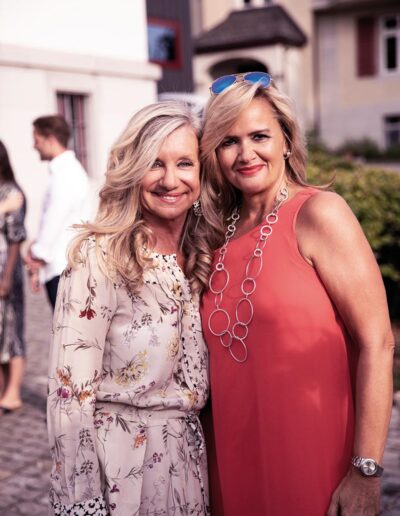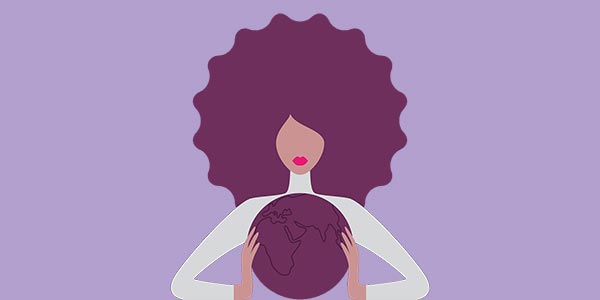
Patrycja Pielaszek
Lead Trainer, Lecturer, Facilitator, TEDx Speaker Community builder & founder of WeCoCo.io
www.pielaszek.ch
What if we look at the current status of the economy through the eyes of children? As a child, you don’t know what growth at any cost in a capitalistic world is. You don’t grasp the scope of abilities required for businesses to gain and keep a competitive advantage in the market. You don’t fathom what strategic imperatives like profit over people have caused so far.
Thinking of my own childhood reminds me of the time we flew from Poland to Switzerland where I didn’t know the language. The only language I understood was the language of kindness and compassion that was bestowed to us from people who didn’t know us and who didn’t owe us anything. Without asking anything in return, they helped us find work for my parents and set up a new home for our family. And they supported us to find our way around the new country and the Swiss culture by providing us with the relevant information about settling here. This experience of unconditional support had a strong impact on me. It has influenced me as a person and a leader. I have always put people above profit, regardless of the consequences for me. It has always been my inner conviction that empathy and kindness in business really do pay.
The world is currently grappling with heightened uncertainty marked by geopolitical tensions, climate change, ongoing public health challenges, and rapid technological changes, contributing to a complex and unpredictable global landscape. Especially in times of uncertainty, what place does kindness have in business? Can we afford to be kind and invest in our people, or should we be focused on ensuring survival at any cost? — I have a clear opinion on this: kindness should be the foundation of good business, regardless of what the world throws at you. I believe in the vision that businesses can be a force for good by creating positive impact, not only for their stakeholders but also for society at large. This calls for a shift away from profit as the sole driver of growth and towards promoting values such as fairness, equity, and stewardship. Valuing kindness as a currency and considering generosity as the best investment signifies businesses embracing an enhanced role as agents of positive change. It goes beyond corporate social responsibility and philanthropy – it requires integrating values of kindness and compassion into every aspect of the business. This could mean implementing fair trade practices, reducing waste and emissions, or prioritising diversity and inclusion in the workforce.

Of course, businesses need to make profit. And kindness will pay off if you’re willing to put in the work. Kindness is a long-term commitment that must be felt and reciprocated across your whole organisation, from leadership to frontline workers, and right through to your clients and customers. When you treat your people well, there’s an emotional ‘contract’ that grows between employer and employee. Relationships are critical for building successful and resilient teams. As a facilitator and advisor for leaders, I experience this every day. Building relationships and leading with kindness is important because it fosters trust and creates a supportive environment that encourages collaboration and collective well-being.
According to studies, it has been proven that social connections are tightly connected to performance. From my experience kindness equals happy people, which equals better performance, which equals profitability. It’s really in a company’s best interest – even from a financial perspective – to help its teams build stronger social connections at work. And how do we build stronger relationships? — With random acts of kindness! Acts of altruism – giving to both friends and strangers – can decrease stress and contribute to enhanced mental health. And on top of that, they work wonders for building stronger relationships. As simple as it may sound, I strongly encourage every leader to invest in this area – because it’s really at the heart of successful and long-lasting teams.
Why do I see the kindness economy as the path forward? — As businesses navigate the complexities of the modern world, the kindness economy presents an opportunity to redefine success and create a more just and compassionate society. By prioritising kindness, businesses can generate profit while also making a positive impact on people and the planet. Whether it’s through fair trade, environmental sustainability, or support for social causes, the kindness economy is a powerful force for change and progress. The kindness economy offers a vision of commerce that seeks to balance profit with purpose. It represents a shift towards a more compassionate and equitable way of doing business. As consumers become increasingly conscious of their purchasing power, businesses that embrace the kindness economy will not only thrive but also contribute to a better world. In an era marked by unkindness, burnout, and notoriously challenging management, we need a new, positive vision for the future.
Patrycja’s Kindness Economy Soundtrack: „Imagine“ by John Lennon





















